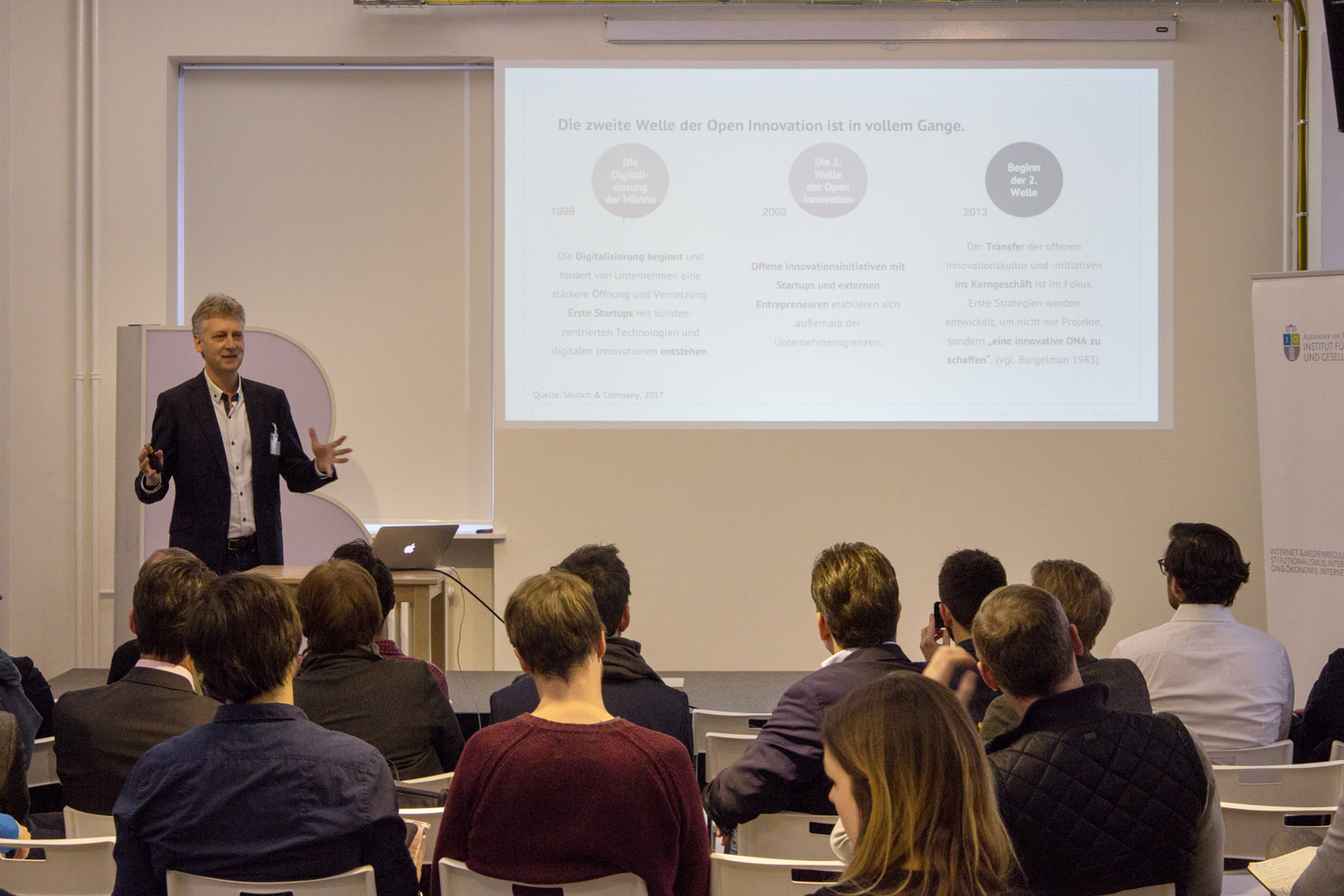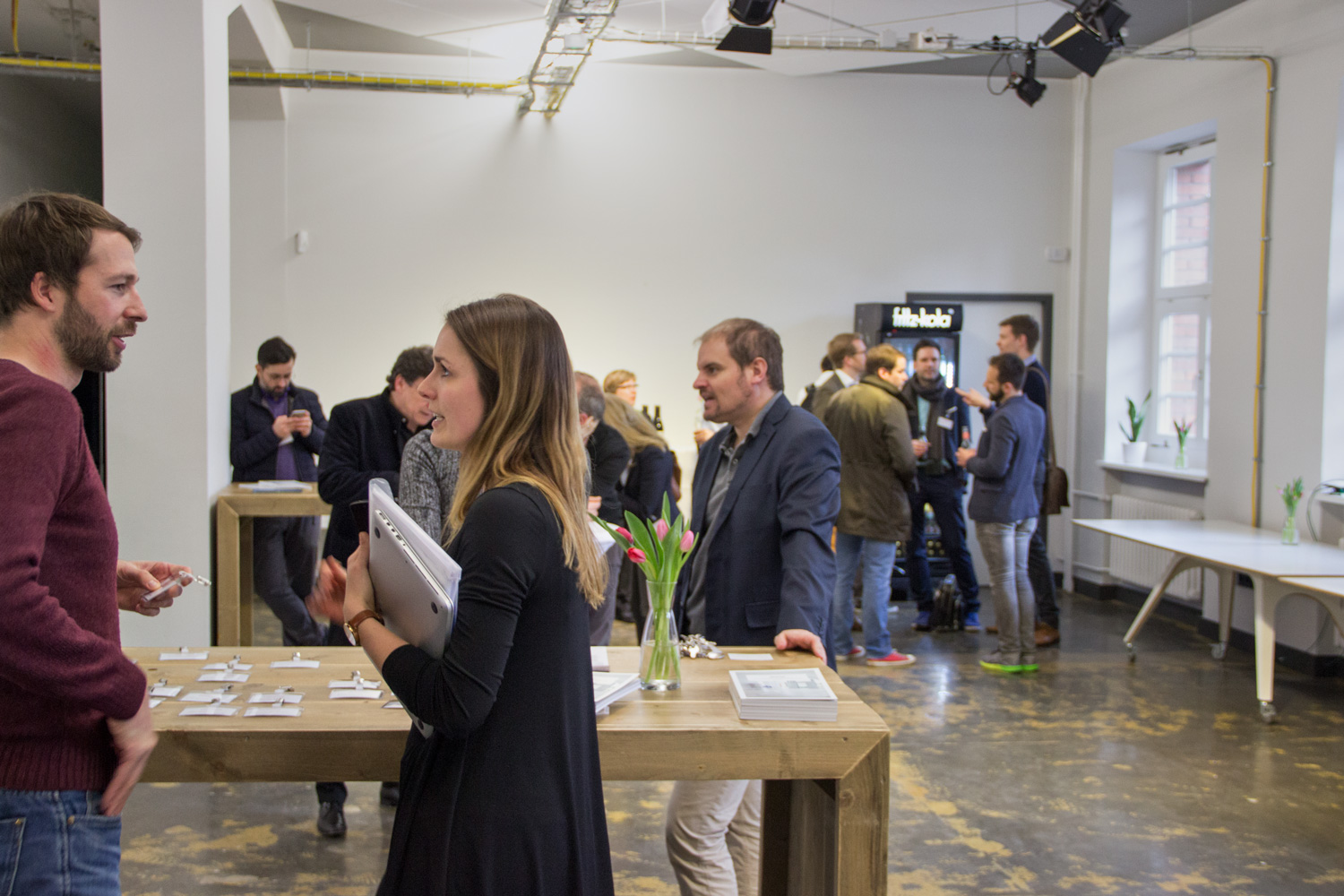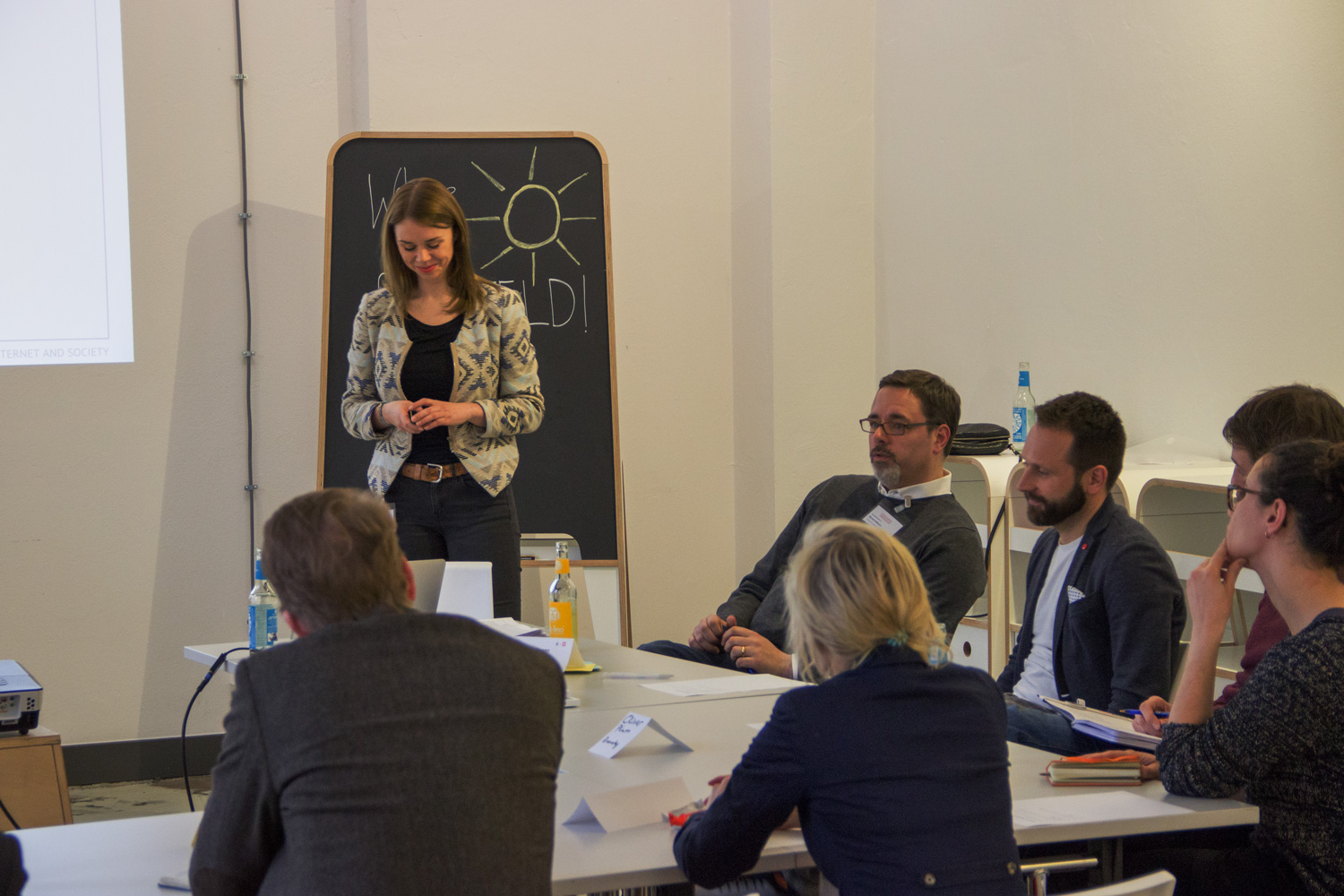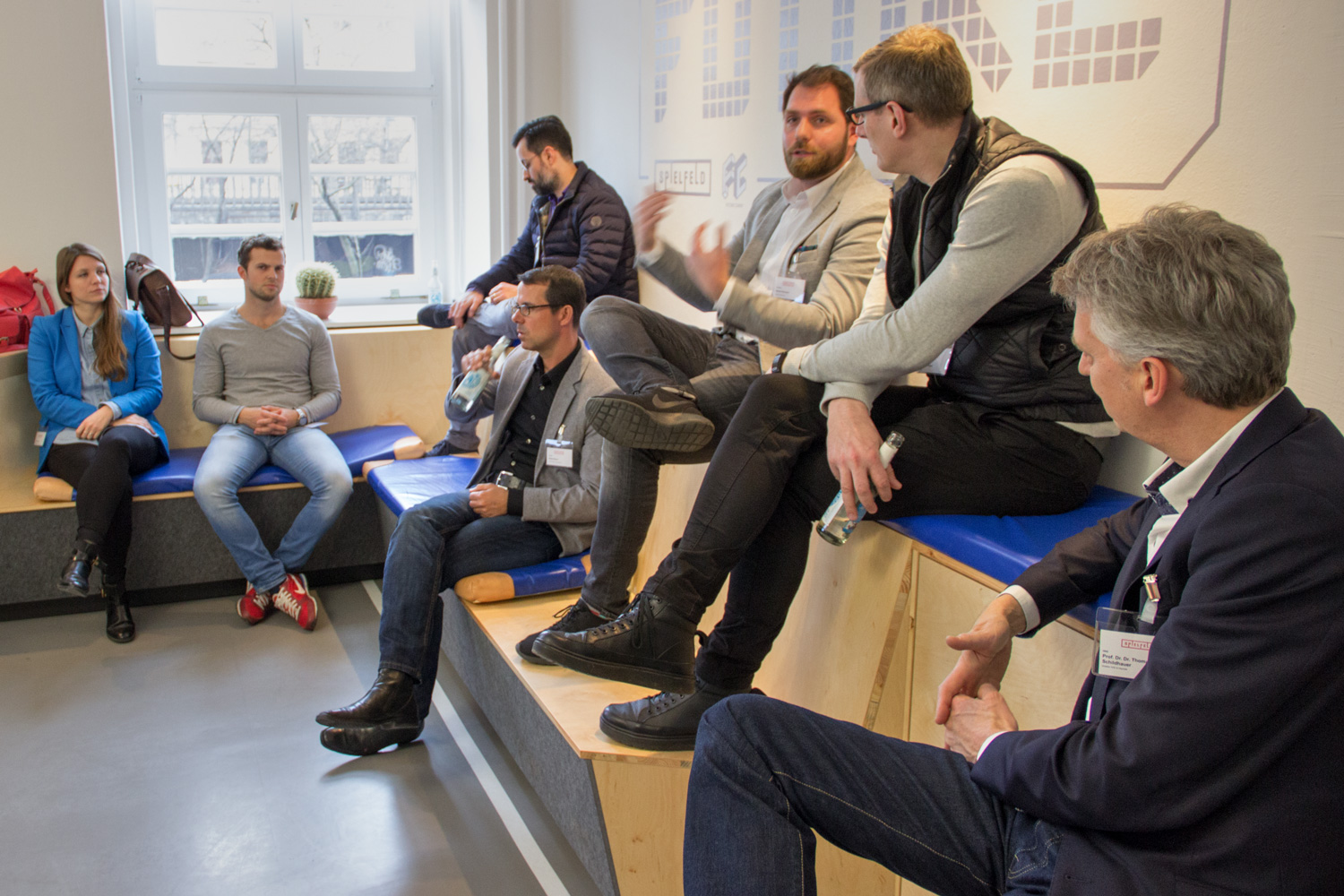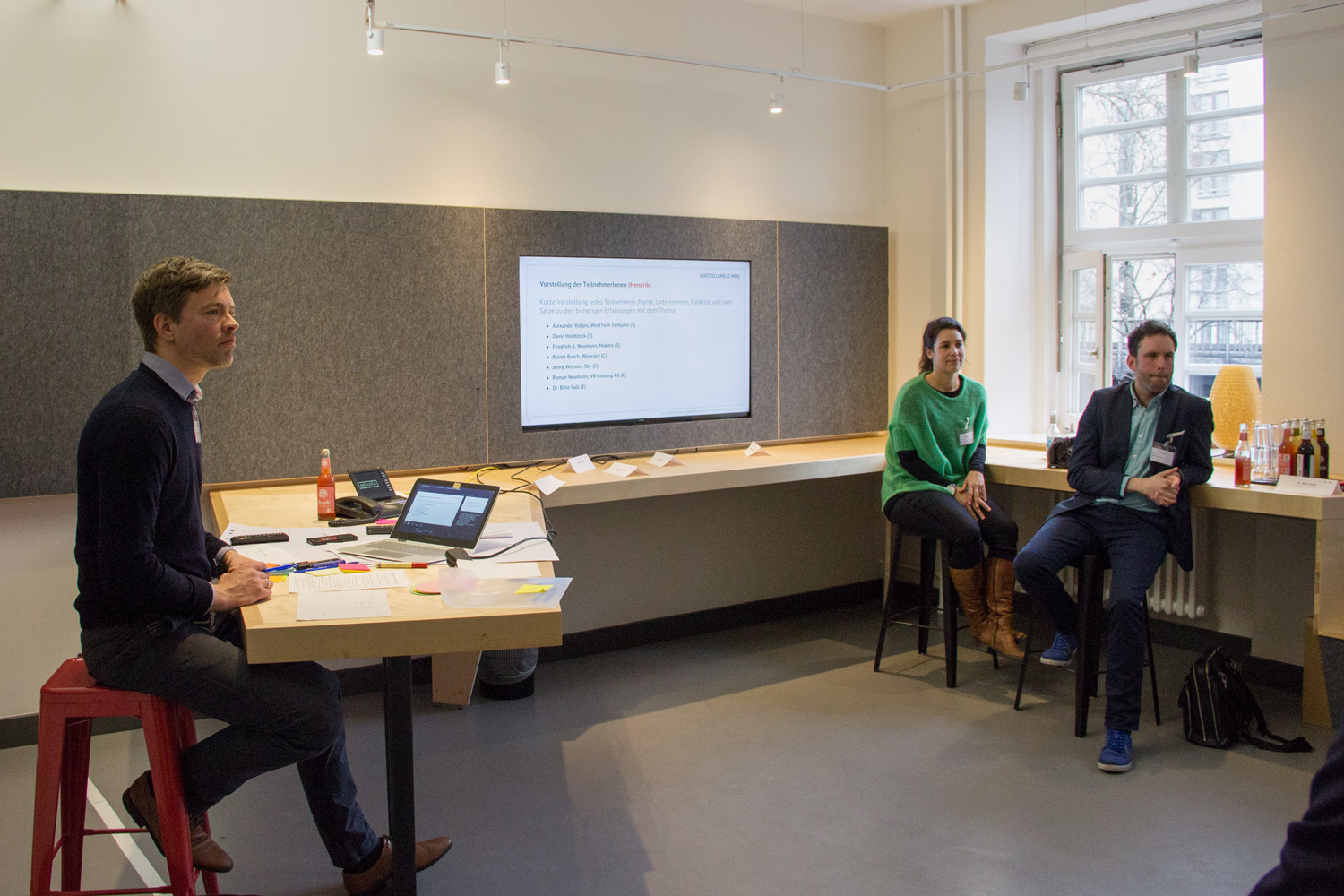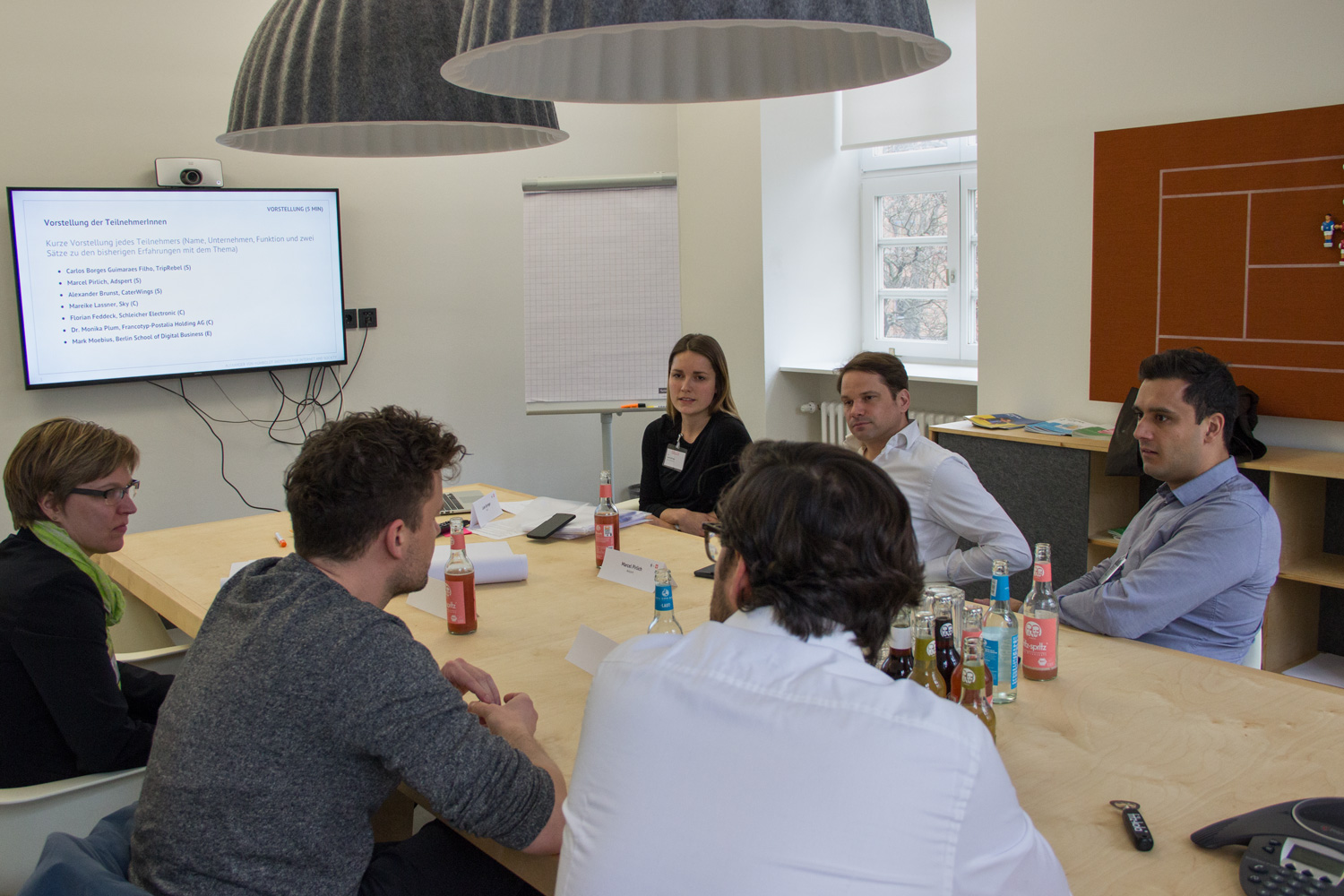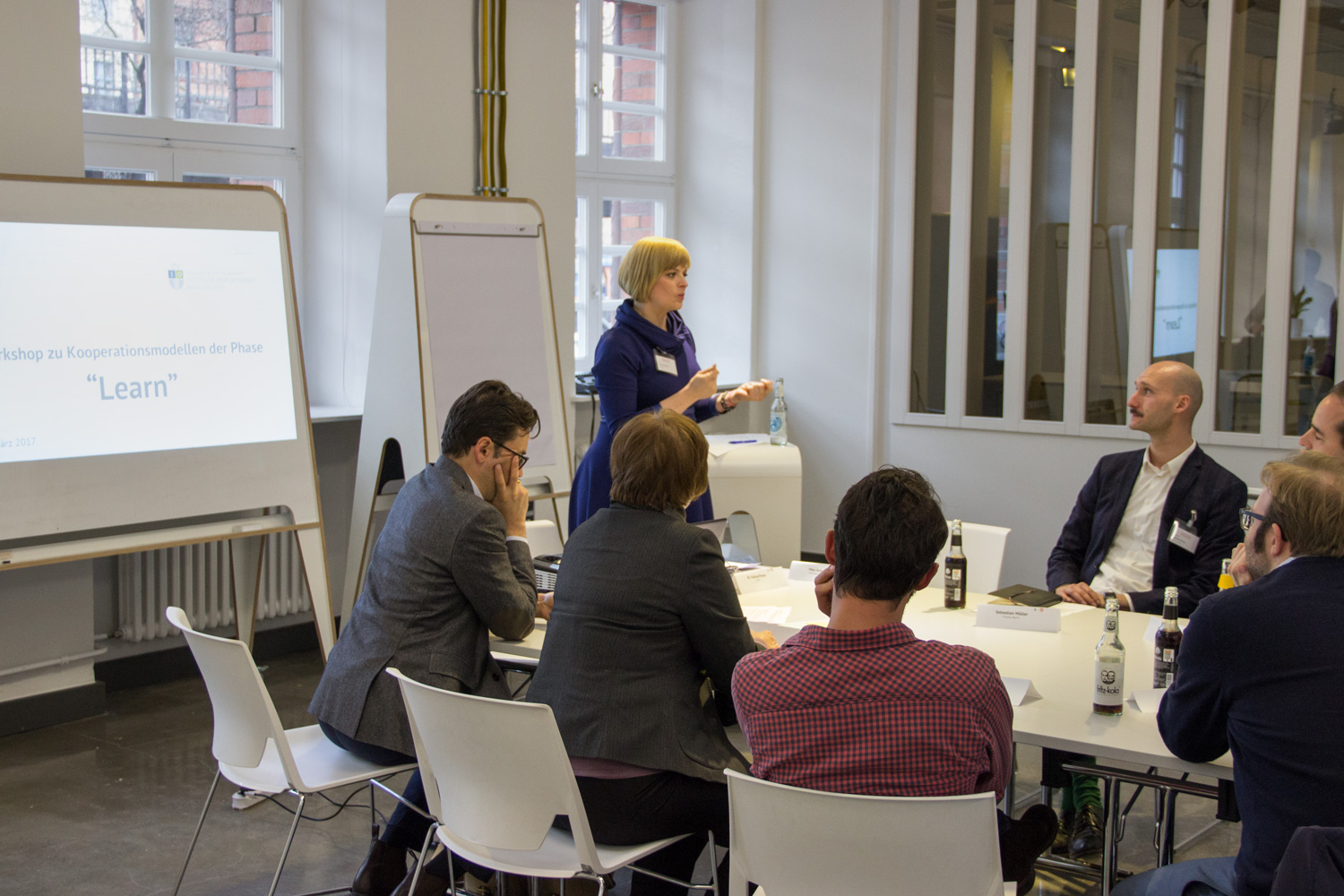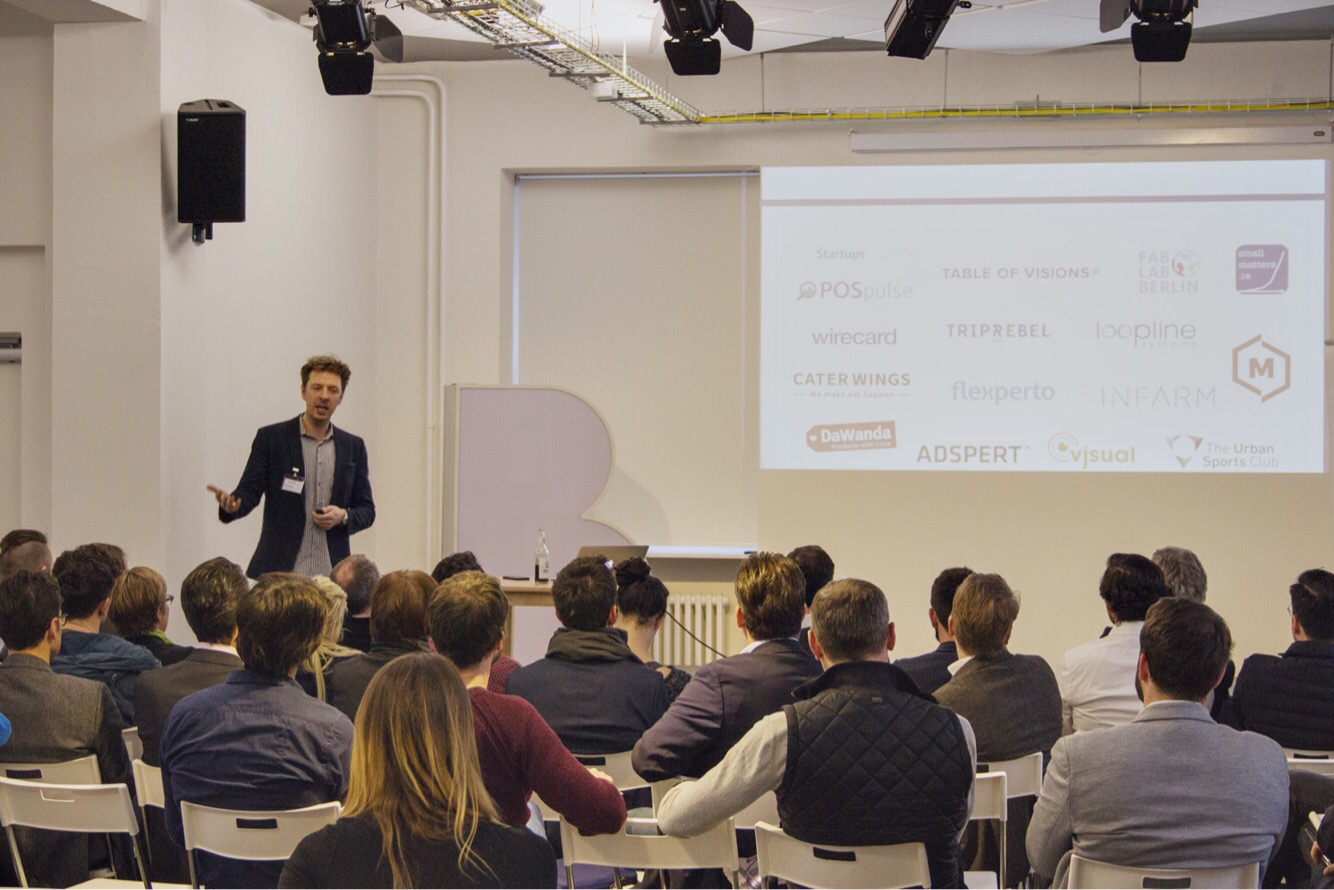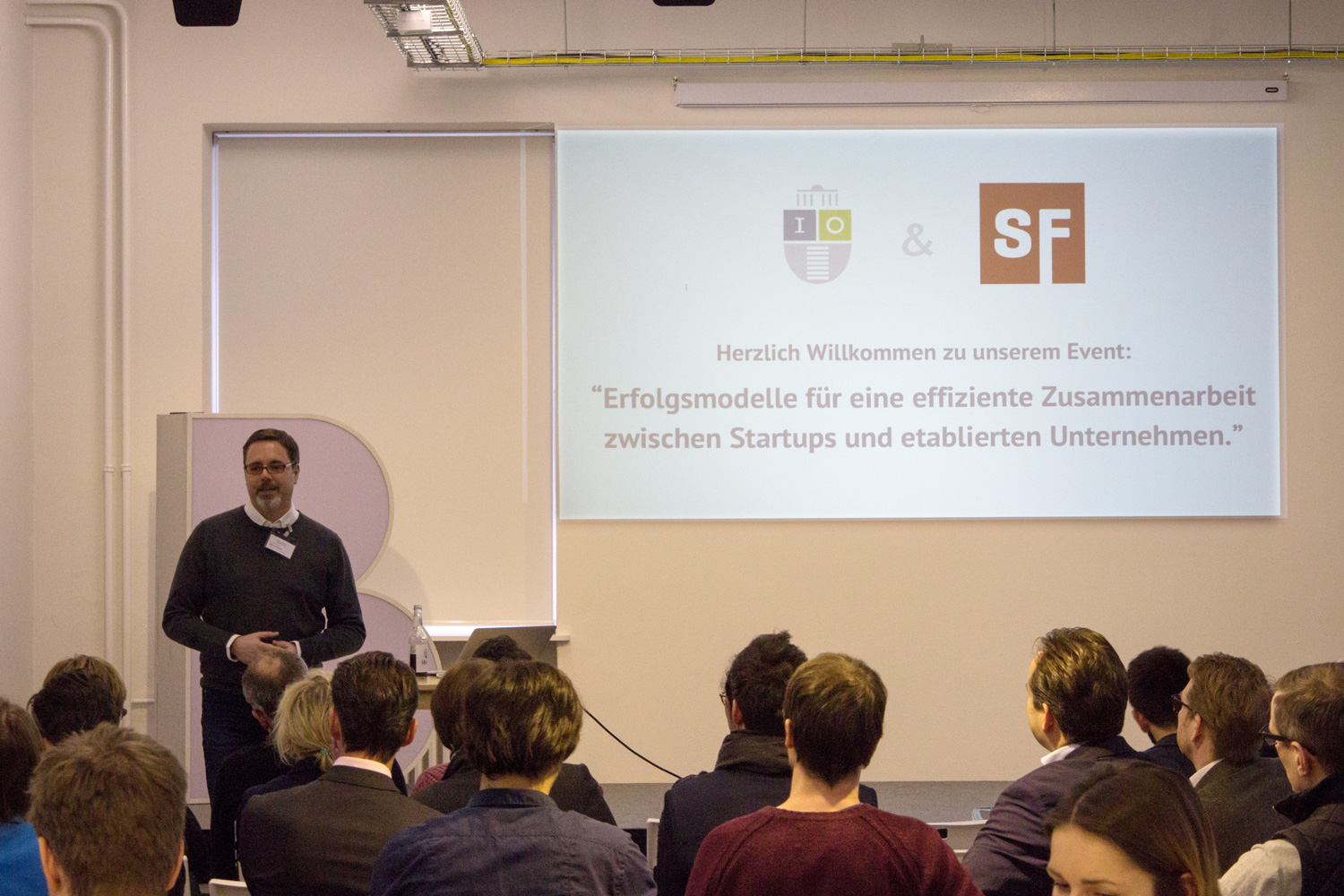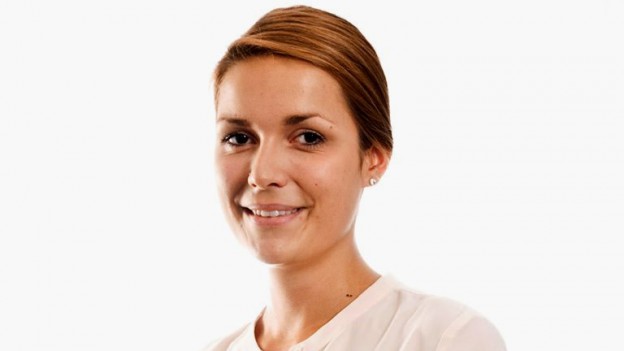Making sense of our connected world

“Startups and mid-sized companies: It’s time to collaborate.”
How can mid-sized companies and startups arrange a successful cooperation with win-win potential for both sides? This question was raised on Monday, 6th March at Spielfeld Digital Hub. As a part of the one year study How to collaborate with Startups? the Alexander von Humboldt Institute for Internet and Society (HIIG) & Spielfeld hosted a large event with experts from both worlds regarding success models for efficient collaboration between startups and mid-sized companies.
Founders from startups such as Adspert, CaterWings, DaWanda, Fab Lab Berlin, Infarm, Loopline Systems, Makers, POSpulse, Table of Visions, TripRebel, Urban Sports Club or Vjsual met executives and managers from Brenntag, Sky, Commerzbank, Francotyp-Postalia, Gebr. Brassler, VR Leasing, Wirecard, German Association for Small and Medium-sized Businesses, WestTech Ventures as well as other experts from Berlin School of Digital Business, D-Labs, FactoryBerlin, Projects & smallmatters and Skubch&Company.
During four workshops the identified stages of collaboration – Learn, Match and Partner – were discussed in small groups.
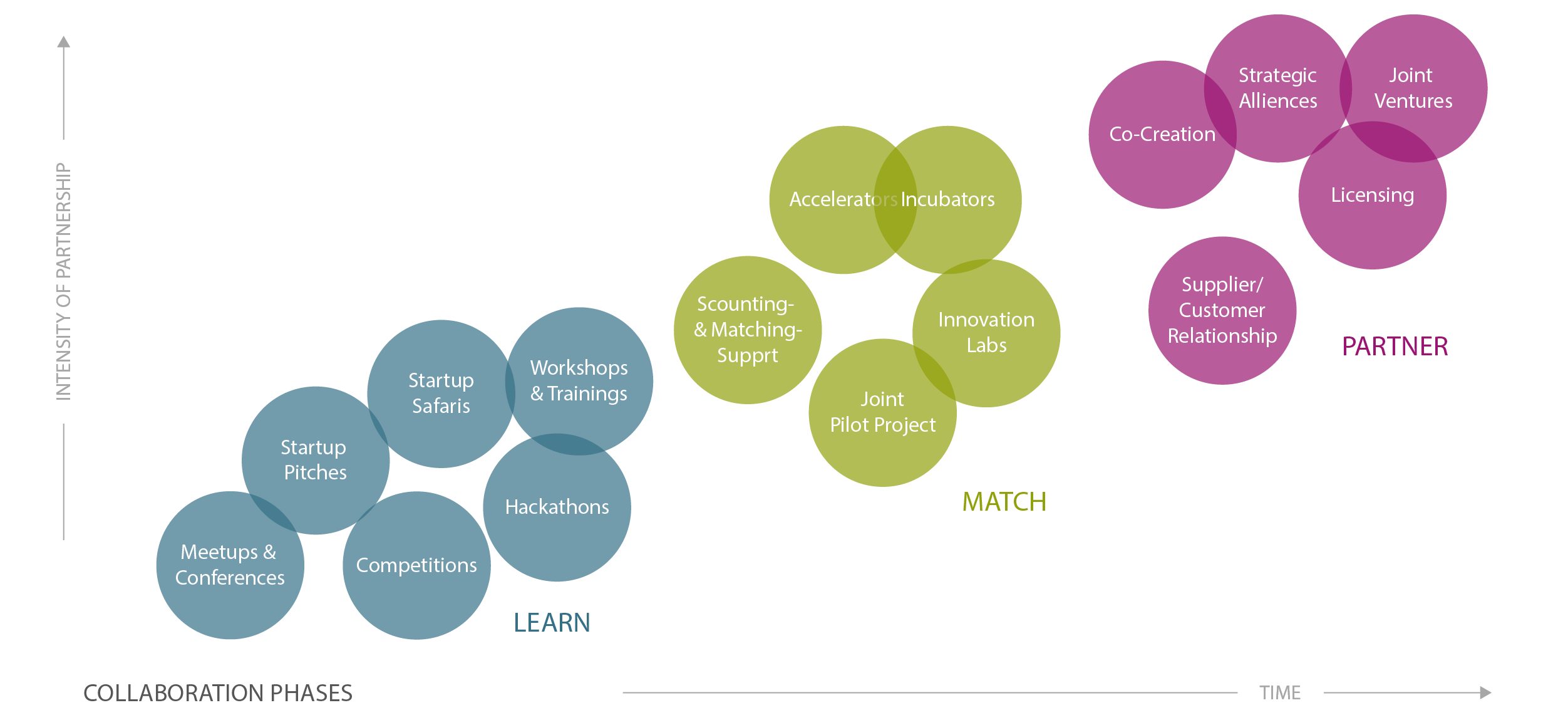
Figure: Framing of collaboration models: Learn, Match and Partner.
The Learn phase includes short-term models such as startup pitches, business plan competitions and hackathons. Match includes short-to-mid-term forms as accelerators or incubators whereas Partner combines long-term collaboration forms such as co-innovation, strategic alliances or joint ventures. Prof. Dr. Dr. Thomas Schildhauer (Research Director, HIIG), Moritz Diekmann (Managing Director, Telefónica NEXT) and Felix Anthonj (Founder, Flexperto) presented their experiences on open innovation within three keynotes. First results of our study will be published soon.
This is an article by Luise Springer and Martin Wrobel.
This post represents the view of the author and does not necessarily represent the view of the institute itself. For more information about the topics of these articles and associated research projects, please contact info@hiig.de.

You will receive our latest blog articles once a month in a newsletter.
Digital future of the workplace
Escaping the digitalisation backlog: data governance puts cities and municipalities in the digital fast lane
The Data Governance Guide empowers cities to develop data-driven services that serve citizens effectively.
Online echoes: the Tagesschau in Einfacher Sprache
How is the Tagesschau in Einfacher Sprache perceived? This analysis of Reddit comments reveals how the new simplified format news is discussed online.
Opportunities to combat loneliness: How care facilities are connecting neighborhoods
Can digital tools help combat loneliness in old age? Care facilities are rethinking their role as inclusive, connected places in the community.
